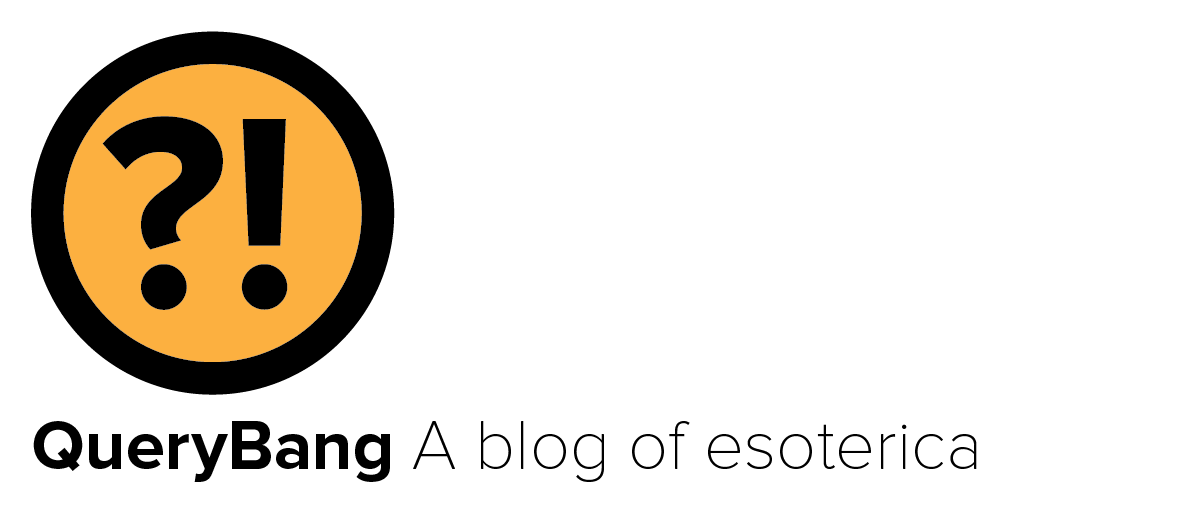Recently, I read through a number of social posts on Mastodon that were discussing the ins and outs of leaving other social media platforms, notably Facebook, but the thread contained mentions of Instagram, Twitter (which I refuse to refer to by its new name), and others. I found it interesting that people’s attitudes ranged from resignation that they didn’t feel that they could leave, to those plotting to figure-out how they might do it. For me, this was easy, and while I recognize that everyone’s different (and so are their needs), I encourage readers to dig beneath the surface.
My social media involvement has been two-fold: personal, and purpose-driven.
My only personal social media participation was on Facebook, and I was an early adopter, embracing it at the time with gusto. But several years ago (I don’t remember exactly how long, but at least six years I believe), I meticulously deleted every post and image I’d ever created. It was a massive hassle, and took a long time, but I eventually got everything removed, after which, I logged-off, and never looked back.
Shortly after a certain billionaire was forced to buy Twitter, I decided to delete every account there that I’d ever opened. Most were long inactive, but going through them, one at a time, and deleting every single one felt remarkably easy. (And remarkably satisfying.)
Because my personal profile is connected to a couple of Facebook Pages I needed to retain access to, I’ve kept my account there after removing all the posted content. But, in the years since I left, I’ve logged-in perhaps twice. It’s probably time to just remove myself from the Facebook Pages in question, and be gone in full, for good; it’s serving no identifiable function for me.
On the purpose-driven (interest-driven) front, I created an Instagram profile for my film photography, and another for my film photography website. It was interesting for a year or so, and I interacted with a wide range of like-minded folks. But then Meta’s algorithms and various changes in features and functions rendered the platform too frustrating to bother with. Between the functionality of Instagram itself to the many analyses of it in the tech press, it’s abundantly clear what Meta’s interests are as a company, and I’m uninterested in being part of their social engineering experiment any longer. My profiles and content are still there, but I’ve not logged-in to Instagram in any meaningful way for well over a year now, and removing my content, and my accounts, is on my to-do list.
Beyond these profiles, I’ve tinkered with Mastodon some — lately and most interestingly in conjunction with ham radio. The topic of Mastodon, how it functions, and precisely why it can have a completely different feel than mainstream corporate social media, is a subject for another time. When most people talk about “leaving social media,” they’re talking about the big, corporate-run (or billionaire-run) services like Facebook, Instagram, Twitter (again, I refuse to use its current so-called “name”), TikTok, etc.
The Issues
There are several things to ponder on this topic.
Losing Contact
One of the themes I saw in the discussion was that people felt as thought they would lose contact with friends, family members, former coworkers, and others if they left their social media platform of choice. I understand, but I counter that argument with this: If social media is your only link to these people, how important are they to you — and vice-versa?
That truly is my litmus test: Anyone who matters to me knows my phone number, and knows my email address, and they presumably know how to use either or both of those channels to reach me. The loss of a social media pathway is not terminal to any human relationship of any real importance in my personal view.
Losing History
Another theme was losing all the history that was captured in the form of posts and replies over time. There is a self-journaling aspect to social media, and I suppose that could be important to some. I certainly don’t have any brilliant ideas for preserving whatever history one might think is encapsulated in something like years of Facebook posts, apart from data export tools that are available in many online platforms these days as a sort of box-checking exercise to please regulators in some jurisdictions.
But much like my previous point, if your social posts are authentic representations of your personal history in a way that you feel they need to be saved somehow, I might suggest investing in true journaling, whether keeping a diary or a scrapbook or even some digital form where the data is under your control, and your purview — and not something that makes you beholden to a corporation that values money over your privacy.
Who Do You Trust?
That last part — beholden to a corporation that values money over your privacy — should, in my view, be the paramount concern with the vast majority of social media. These tools are “free” to use, but they are anything but “free.” From being deluged with advertising that is actively targeted to you and your expressed interests through sophisticated (and frankly, creepy) technical tracking, to using your interests, behavior patterns, demographics and other information and selling the accumulated dossiers to the highest bidder, there’s a popular maxim that applies here: When the service is free, you are the product.
I find it interesting how many people take so lightly situations like this: “Oh, I Googled for slip-on shoes, and now my Facebook feed is full of posts about slip-ons!” It feels like a joke; something to just tolerate. Why that doesn’t that even give a person pause to think about the creepy underpinnings of how that happens is beyond me. But just stop and think: If Facebook knows you’re interested in slip-on shoes by Googling and visiting the odd website, they also know things like your political affiliations, whether you feel depressed or not, whether you have concerns about digestive health, what sort of kinky sexual interests you think you clandestinely have, your religious interests (or lack of them), whether you’re single or happily married or unhappily married, and many other personal details about you — and it’s all based not just on what you look at within Facebook (which is telling), but sophisticated tracking built into other websites that you visit along with it — not to mention other data sources vacuumed-up through advertisers.
I’m not going to delve into the way this works; I’m hardly a world expert, and it’s a rapidly evolving landscape. But the nature of this particular beast is well-documented. Do your homework. This is not a conspiracy theory, it’s not fiction — it’s multi-billion dollar fact, and if you think you’re escaping its reach, you’re living a fantasy.
The “So What?”
Whether you believe any of this or worry about any of it (or think it’s even worth worrying about) is a personal decision I can’t make for you. If you think social media is the place to be, by all means.
The real purpose of this post is invite you to just stop (or slow down) and actually think about how important social media truly is to your life, your relationships, and your privacy, and whether any of that is worth it.
For me, much of this boils down to “log out of your device, and log into life.” That so much of life itself happens in a digital realm is concerning to me, and it feels like it should be concerning to everyone. But that’s rich coming from a blogger, writing a post online, for readers online.
I do feel strongly that a little balance, and some proactive thinking and making of choices seems appropriate for anyone, anywhere, with anything. Social media, on the other hand, seems designed specifically to help you bypass those inconvenient efforts, reinforce pavlovian responses, and deliver a dopamine hit.
But don’t let anyone tell you that leaving social media isn’t really possible. It is possible, and it is a choice. All you have to do is make it.

